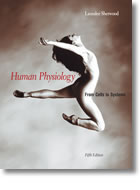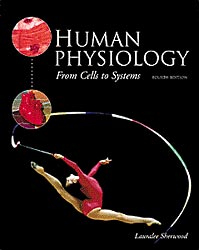|
Lecture Times |
|||||||||
|
Mondays and Wednesdays |
|||||||||
|
Prerequisites |
|||||||||
An
introductory biology course is a prerequisite. Most students in this
class have taken Introduction to Molecular and Cellular Biology
(C2005/C2006) or Contemporary Biology (F2401/F2402) here at
Columbia. If you took a biology course a few years ago or at a
different school, it would be a good idea to review some basic
principles, either in the course textbook, or in any of the
general biology textbooks on reserve in the Biology Library, such as:
|
|||||||||
|
Problem Sets and Recitation |
|||||||||
| Problem
Sets contain questions that were asked on exams in previous years.
You will not see the same questions again, but trying to solve those
questions is the best way to test yourself to see if you really
understand the material. Recitation
is optional. This is a chance to review material that wasn't
clear in lecture; work on additional study problems; test your knowledge
by asking and answering each others questions.
Monday, 5:30-6:30, 253 Engineering
Terrace (Medha) |
|||||||||
|
Textbook |
|||||||||
|
|||||||||
|
Other reading |
|||||||||
| In
addition to the textbook, you'll be expected to read a few articles
related to physiology. |
|||||||||
|
Announcements |
|||||||||
| I'll
maintain an email list of all students registered in the course, and
send announcements about the course, as well as answers to questions
about the material. If you haven't heard from me
in the first week, make sure I have your address. This generally
averages about 3-4 messages a week, but they do cluster around exam time. |
|||||||||
|
Handouts |
|||||||||
| Handouts
will be left in the boxes outside my office (744 Mudd) after class, so
if you lose one, you should be able to pick up a copy. Let
me know if there are no more left in the pile there. |
|||||||||
|
Writing Assignments |
|||||||||
| There
are 4 short writing assignments that will give you experience in finding
and reading research articles (5 points each). The writing final
writing assignment is a 3 page paper in which you will summarize a
critique a research article in physiology (20
points).
|
|||||||||
|
Exams |
|||||||||
| Mini-exams. There will be 5 mini-exams given during the semester, each taking less than half a lecture period (25 minutes). The purpose of the frequent exams is to encourage you to study frequently! Don't save all your studying for the night before an exam. The mini-exams will require you to know both the facts of physiology that we study, as well as be able to apply those facts to solve new problems. About 60% of the questions will be straightforward questions on the facts of physiology. The remaining 40% will be more challenging thought questions that require you to use what you've learned to solve new problems. Each mini-exam will cover the material since the previous one. I'll drop the lowest of the 5 grades you get on these mini-exams. If you miss one exam for any reason, you'll get a zero on that exam, and that will be the grade that I'll drop. Do not skip an early exam unless you have to; stuff happens, and you may have a serious reason for needing to skip a later exam. Final exam.
|
|||||||||
|
Grading |
|||||||||
Your
grades will be based on exams and written assignments.
The usual cut-offs will be used to determine letter grades at the end of the semester:
If the course mean is less than 80, then these cut-offs will be adjusted accordingly. |
|||||||||

